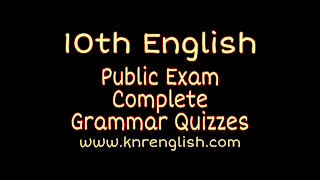Acquire: To obtain or gain possession of something.
Ambiguous: Having more than one possible meaning or interpretation.
Analyze: To examine something in detail and break it down into its components.
Apprehensive: Anxious or fearful about something that might happen.
Authentic: Genuine or real, not fake or counterfeit.
Coherent: Logical and consistent, with ideas that are well-connected.
Comprehend: To understand or grasp the meaning of something.
Consequence: The result or effect of an action or event.
Convey: To communicate or make known, usually through words or gestures.
Criteria: Standards or requirements used to evaluate or judge something.
Deficient: Lacking or incomplete in some way.
Distinguish: To recognize or identify as different or distinct.
Elicit: To draw out or evoke a reaction, response, or information.
Emphasize: To give special importance or attention to something.
Enhance: To improve or intensify the quality, value, or attractiveness of something.
Evaluate: To assess or judge the value, significance, or quality of something.
Exaggerate: To overstate or magnify something beyond its actual importance.
Explicit: Clearly and precisely stated or expressed.
Generate: To produce or create something, often referring to ideas or energy.
Hypothesize: To propose or suggest a possible explanation or theory based on limited evidence.
Illustrate: To provide examples or visual representations to clarify or explain something.
Inference: A conclusion or deduction based on evidence or reasoning.
Integrate: To combine or merge different parts into a unified whole.
Interpret: To explain or understand the meaning or significance of something.
Justify: To provide reasons or evidence to support a claim or decision.
Paraphrase: To restate or rephrase something in different words, often to clarify its meaning.
Plausible: Seeming reasonable or likely to be true, although not necessarily proven.
Precise: Exact, accurate, or clearly defined in terms of measurement or description.
Proclaim: To announce or declare something publicly or officially.
Profound: Having deep meaning or significance; intellectually or emotionally intense.
Reflect: To think deeply or ponder on something; to give back or mirror an image or sound.
Relevant: Closely connected or applicable to the matter at hand.
Sufficient: Adequate or enough to meet a particular requirement or need.
Synthesize: To combine or blend different elements or ideas to form a coherent whole.
Tolerate: To accept or endure something, often unpleasant or undesirable.
Trace: To follow or track the development or course of something.
Undermine: To weaken or subvert the foundations or effectiveness of something.
Validate: To confirm or substantiate the accuracy or validity of something.
Verify: To establish the truth or accuracy of something through evidence or investigation.
Widespread: Existing or happening over a large area or among a large number of people.
Yield: To produce or provide a result or output.
Abundant: Existing or available in large quantities; plentiful.
Cognizant: Aware or conscious of something.
Elaborate: To expand or add details to something; to develop thoroughly.
Novice: A beginner or someone new to a particular activity or field.










No comments:
Post a Comment